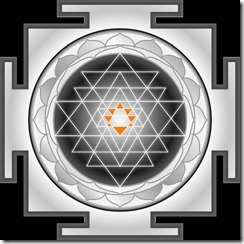Note Before: I cannot write this post without mentioning how sad I am at the passing of O.S.Thyagarajan and Rashid Khan in recent weeks. The world of music has suffered a loss. I have only heard them online, not even once on a live stage, yet their passing has left me grieving. I am, at present, re-studying the Gita. I am told that death is no more than a change of clothes for the Atma. So why the grief? But there it is…and life goes on.
My very best wishes to those who celebrate Pongal / Makara Sankranti! May the Gods bless all of us with abundance!
Curious, I looked up a Tamil dictionary to what it says about Pongal. Here is what I read “Solar festival when the sun enters Capricorn and takes a northward course, being the first day of the month Tai, when poṅkal is prepared as an offering; சூரியன் மகர ராசியிற் பிரவேசிக்கும் நாளான தைமாத முதற்றேதி யன்று சூரியனைப் பூசித்துப் பொங்கல் நிவேதனஞ் செய்யும் திருவிழா”. This puzzled me a bit, because I thought Sun entered Capricorn on December 21st or thereabouts. Further reading confused me even more. Wiki says “Every year sidereal and tropical equinoxes slide by 50 seconds due to axial precession, giving birth to Ayanamsha and causing Makara Sankranti to slide further…….In 272 CE, Makara Sankranti was on 21 December. In 1000 CE, Makara Sankranti was on 31 December and now it falls on January 14. After 9000 years, Makara Sankranti will be in June.” My respects to anyone who understood that! Going back to the dictionary definition of Pongal, it also means “Fullness, abundance, excess, profusion; மிகுதி”. I assume that the act of allowing the pot to overflow when cooking Pongal signifies that?
Feeling ashamed of my ignorance after I wrote the above, I tried to educate myself a bit. A very tiny light switched on in my brain after listening to a lecture by Raj Vedam here. I know so little about all this! Have much to learn.
Wondering which song to feature, my thought went to this lovely composition on Annapurna who holds a pot filled with payasa-anna in one of her hands. What is Chakkarai-pongal but that? A little Googling brought up the information that Annapurna is also the Goddess of the Shaktipeeth in Kashi where she is called Vishalakshi, as named in this composition as well. The Annapurna Stotram, which is written by Adi Shankaracharya ,says “वामे स्वादुपयोधरा” i.e. holding delicious/sweet milk in her left hand. It seemed to me that a Goddess holding rice-payasam and responsible for plentitude in this world is perfect to pray to and sing about on this day!
I must rush to explain that there is no religious or cultural association of Annapurna with Pongal/Sankranti; it is purely my own flight of fancy!
I do like the gentleness of the Raga Sama, don’t you? I heard quite a few renditions of this song in preparation for this post. But as I am going through a mad-addiction-for-KVN phase, the rendition below sounded best to my ears. So go for it – pick up a nice bowl of Pongal, switch on the music and enjoy both on this auspicious day!
For an instrumental version, here is U.Srinivas on the Mandolin. How he made the instrument sing!
Footnote (Lyrics and Translation):
Composer: Muthuswami Dikshithar
Raga: Sama
Kshetra: Kuzhikkarai (near Tiruvarur)
Language: Sanskrit
पल्लवि
अन्न पूर्णे विशालाक्षि रक्ष अखिल भुवन साक्षि कटाक्षि
अनुपल्लवि
उन्नत गर्त तीर विहारिणि ओंकारिणि दुरितादि निवारिणि
(मध्यम काल साहित्यम्)
पन्नगाभरण राज्ञि पुराणि परमेश्वर विश्वेश्वर भास्वरि
चरणम्
पायसान्न पूरित माणिक्य पात्र हेम दर्वी विधृत करे
कायजादि रक्षण निपुण तरे काञ्चनमय भूषणाम्बर धरे
(मध्यम काल साहित्यम्)
तोयजासनादि सेवित परे तुम्बुरु नारदादि नुत वरे
त्रयातीत मोक्ष प्रद चतुरे त्रिपद शोभित गुरु गुह सादरे
Transliteration
pallavi
anna pUrNE vishAla-akshi raksha akhila bhuvana sAkshi kaTAkshi
anupallavi
unnata garta tIra vihAriNi OMkAriNi duritaAdi nivAriNi
pannagaAbharaNa rAjni purANi paramEshvara vishvEshvara bhAsvari
caraNam
pAyasAnna pUrita mANikya pAtra hEma darvI vidhRta karE
kAyajAdi rakshaNa nipuNa tarE kAnchanamaya bhUshaNa-ambara dharE
tOyajasanAdi sEvita parE tumburu nAradAdi nuta varE
trayAtIta mOksha prada chaturE tripada shObhita guruguha sAdarE
Translation
O Goddess Annapurna! O wide-eyed (vishAla akshi) One! O Goddess (implied) of glances (kaTAkshi) which witness (sAkshi) the entire (akhila) universe (bhuvana)! Protect (raksha) me (implied)!
O Goddess (implied) who resides in (vihAriNi) the eminent (unnata) Kuzhikkarai (garta-tIra pit-shore, literal translation of Kuzhikkarai)! O Embodiment of Om (omkAriNi)! O Goddess (implied) who wards off (nivAriNi) difficulties (durita) etc (Adi)! O Queen (rAjni) of the one who is adorned with snakes (pannaga AbharaNa)! O Ancient-One (purANi)! O Shining-One (bhAsvari) with (implied) the Supreme (parama) God (Ishvara), the Lord (Ishvara) of the world (vishva) (Lord Shiva)!
O Goddess (implied) in whose hand (karE) is a gem-studded (mANikya) vessel (pAtra) with a golden (hEma) ladle (darvI) filled with (pUrita) rice pudding (pAyasa-anna)! O Goddess (implied) who is the best (-tara suffix) at protecting (rakshaNa) Manmatha (kAyaja – not sure of this) etc (Adi)! O Goddess who (implied) wears (dharE) clothes (ambara) with decorations (bhUshaNa) made of (maya suffix) gold (kAnchana)! O Supreme One (parE) worshipped by (sEvita) Brahma (tOyaja Asana, one who sits on a lotus) etc (Adi)! O Best One (varE) worshipped by (nuta) by Tumburu, Narada etc (Adi)! O Goddess who (implied) is skilled (chaturE) in providing (prada) liberation (mOksha) beyond (atIta) the three (traya) (possibly means wake, dream and sleep states or dharma, artha, kAma)! O One Respected by (sAdarE) by Guruguha (Kartikeya, also the composer’s signature) who is adorned with (shObhita) the three-words (tripada, meaning three-word mantra)!






 The worship of fire and the worship with fire has been a part of ancient religions across the world. If the Adityas and then Agni were primary deities in the Vedas, the Zoroastrians saw fire as the light of Ahura Mazda. The Vestal Virgins of ancient Rome worshipped the Sacred Fire of Vesta, the Greeks bowed to Hestas and Hephaestus, the Aztecs had Chantico, to name just a few. Although I light a lamp every morning and evening at my home altar, although I have seen and participated in innumerable Hindu rituals where the homa fire stood as witness, I have always seen Agni as some remote God of the Vedic people quite unrelated to my own beliefs. I even saw the deification of nature as somewhat primitive, preferring to think of it as symbolic.
The worship of fire and the worship with fire has been a part of ancient religions across the world. If the Adityas and then Agni were primary deities in the Vedas, the Zoroastrians saw fire as the light of Ahura Mazda. The Vestal Virgins of ancient Rome worshipped the Sacred Fire of Vesta, the Greeks bowed to Hestas and Hephaestus, the Aztecs had Chantico, to name just a few. Although I light a lamp every morning and evening at my home altar, although I have seen and participated in innumerable Hindu rituals where the homa fire stood as witness, I have always seen Agni as some remote God of the Vedic people quite unrelated to my own beliefs. I even saw the deification of nature as somewhat primitive, preferring to think of it as symbolic.




